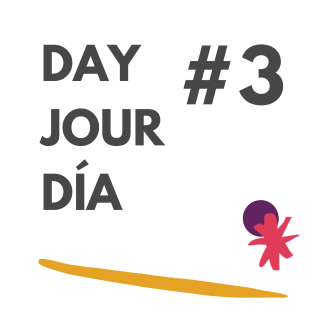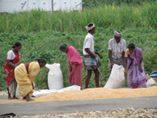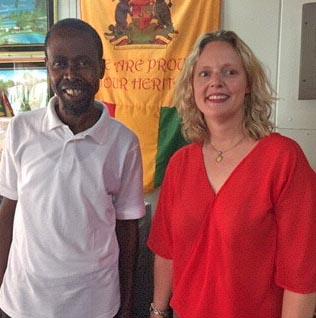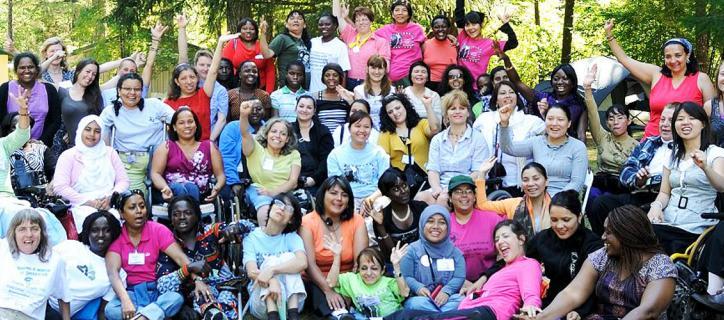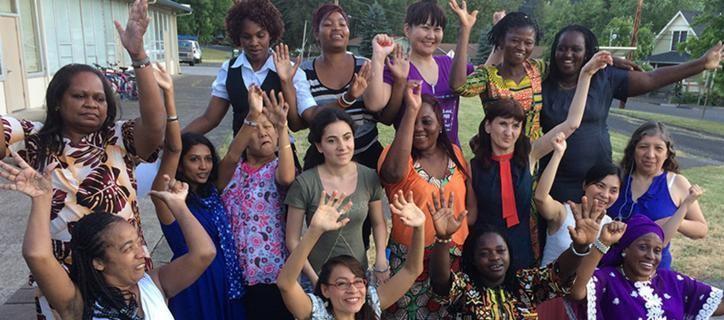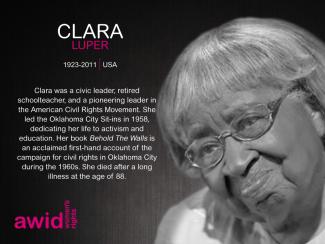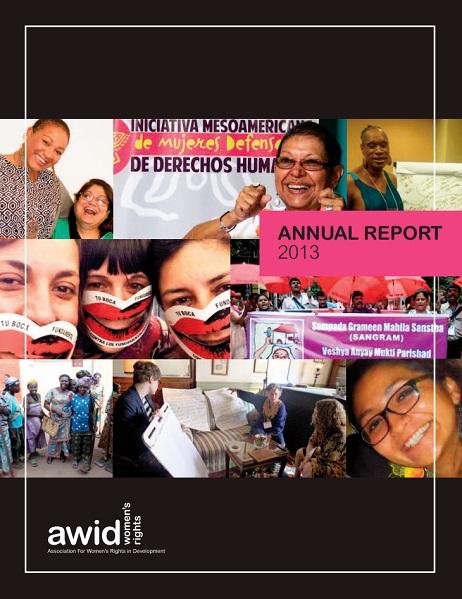«Ahora sé que somos simplemente hijas e hijos del universo».
El camino de Menke Meijer a menudo fue escabroso. «Tenía muchísimos palos en la rueda, gente que intentaba detenerme, pero todo eso me sirvió para poner más empeño y llegar cada vez más lejos», afirma. La suya es una historia de fortaleza, dedicación, visión, paciencia, liberación y superación de múltiples obstáculos.
«Diría que doy batalla en dos frentes: el primero es la lucha por la igualdad de género y el segundo la lucha contra una historia de colonización y racismo».
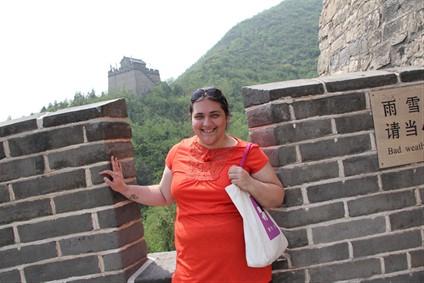
Como mujer métis de un «entorno muy pobre», Menke enfrentó numerosos obstáculos; para ella, el principal desafío fue «tan solo ser mujer, y en ciertos casos ser mujer indígena». Debió hacer frente al sexismo y al racismo. El estigma y los peligros que se derivan del racismo incidieron en su forma de encontrar su lugar y su identidad como mujer originaria. «Mi familia era bastante renuente a hablar de nuestros orígenes», pero finalmente gracias al esfuerzo de Menke, «comenzó a abrirse al tema». Durante sus estudios de pregrado y de grado, Menke tomó todos los cursos que pudo sobre los Pueblos Originarios de Canadá para aprender más sobre sus raíces.
«He trabajado profundamente para descolonizarme y ayudar a mi familia a reivindicar nuestras identidades».
Parte de ese trabajo fueron las decisiones que tomó, y la más grande e importante fue la de «estudiar». Sabía que eso «constituía una apuesta peligrosa, porque implicaba asumir una deuda abultada», pero también se dio cuenta de que, en comparación con su experiencia anterior de trabajar por un salario mínimo, con el estudio se le abría un camino más promisorio.
«Escogí seguir mis pasiones sin importar las dificultades. Eso cambió para bien no solo la persona que soy, sino mi vida entera».
Menke obtuvo una licenciatura en Historia en la Universidad de Concordia (Montreal), con una Beca/Distinción por mérito Gordon Ritchie. Sin embargo, mientras estudiaba la esclavitud, las guerras y los genocidios se sintió frustrada y quiso «entrar en acción» más allá de los libros. Por eso, decidió hacer una maestría en Estudios sobre Paz y Resolución de Conflictos en la Universidad de Waterloo, enfocando su trabajo de tesis en género, conflictos y consolidación de la paz; género y ayuda humanitaria; y sobre todo en las mujeres de China.
«En las dos ramas de mi familia, soy la primera mujer en obtener una licenciatura y una maestría. Estoy rompiendo barreras de género y raciales. Nunca me había sentido tan viva y realizada. Me siento liberada».
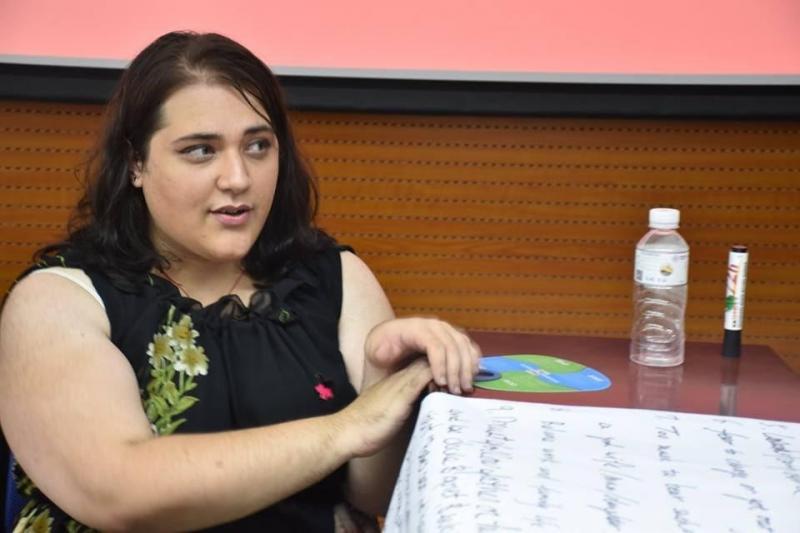
En China, Menke realizó un pasantía de cinco meses de duración con ONU Mujeres, que en su opinión fue «una experiencia extraordinaria en lugares extraordinarios». Durante ese tiempo, fue convocada por la Universidad de Tsinghua en Beijing como oradora invitada para el evento Lean In MBA donde, a través de su propia historia, habló (disponible en inglés) de la superación de las barreras con las que tropiezan las mujeres cuando quieren estudiar. Contó que «Fui criada en la pobreza por una madre soltera y tuve que hacer frente a muchos desafíos para avanzar en mi educación».
La motivación de Menke para superar diversos desafíos y luchar por el cambio fue, en buena parte, la ira que le despertaron los obstáculos que se le presentaban en el camino. «La ira puede ser destructiva, pero también puede ser creativa. Los desafíos me enfadan, pero también me empujan a luchar por algo mejor».
Luchar por algo mejor significa también tener muchos sueños «para todas las mujeres, sin importar si son blancas, negras, asiáticas o de cualquier otro color, credo o condición social». Menke desea que «el mundo valide a las mujeres», pues «nada es más movilizador como que te digan que eres un ser humano como cualquier otro».
Algunos datos más sobre Menke
Tuvo oportunidad de formar parte del equipo que ayudó a crear el Global Peace Centre Canada [GPCC, Centro Mundial para la Paz de Canadá] en Waterloo, fundado por el director de la Maestría en Estudios sobre Paz y Resolución de Conflictos, Ziauddin Yousafzai (padre de Malala Yousafzai). La visión y el objetivo del GPCC son lograr la paz y la educación para todos los niños y las niñas.
Menke nació en la Columbia Británica, creció en Quebec y actualmente reside en Ontario, Canadá.
Lee un cuento escrito por Menke
Menke escribió un cuento titulado «Feeding Wolves», (disponible en inglés) basado en su vida como mujer métis y en las experiencias de los pueblos originarios en Canadá. Sobre el cuento, Menke expresó que «Solo tres de sus personajes son mujeres ... Eso lo hice a propósito no solo para poner en evidencia el tema del patriarcado que está muy presente en la sociedad de los colonos incluso hasta hoy, sino también para mostrar de qué manera las mujeres están ausentes de la narrativa...».











